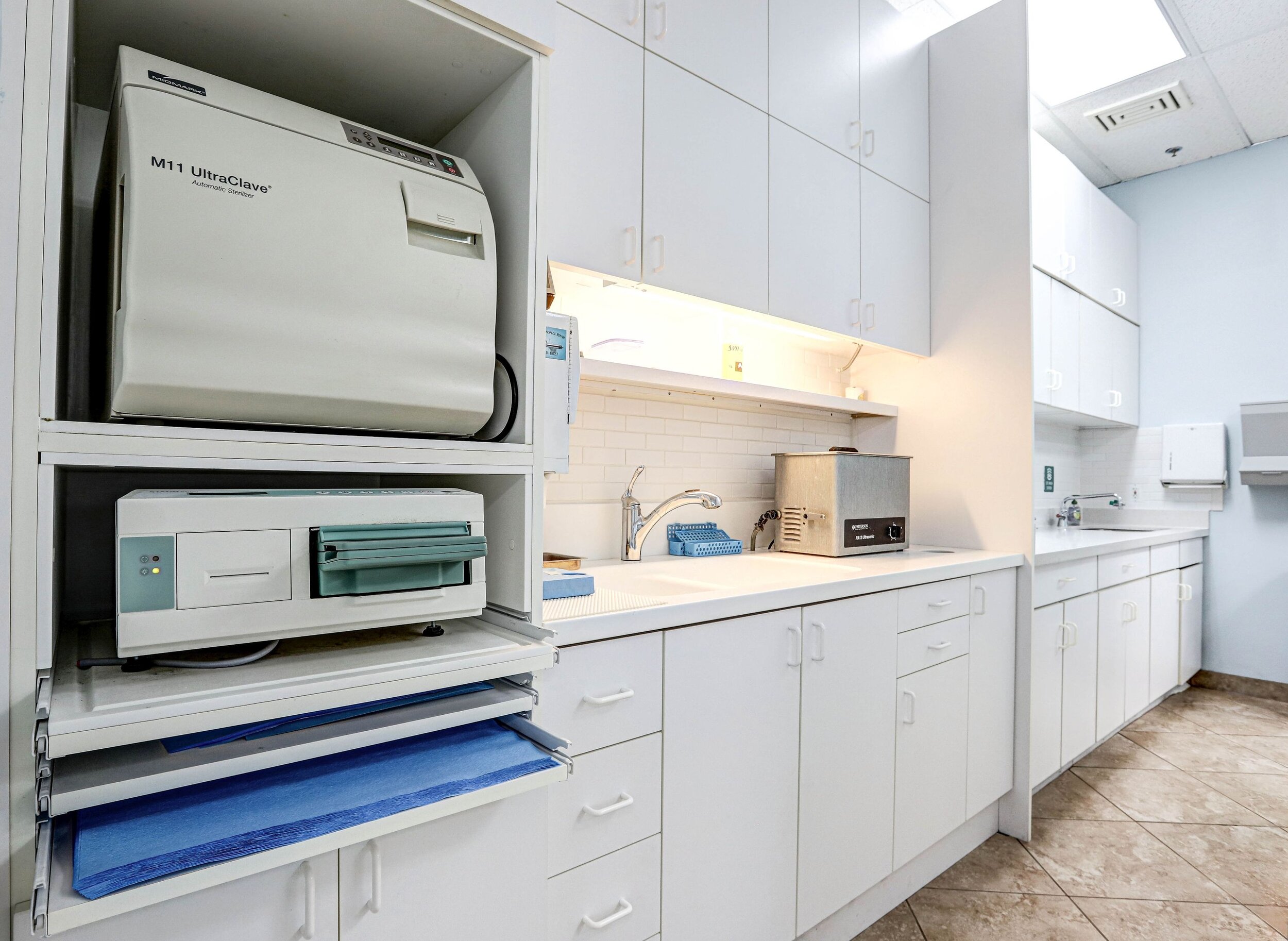
Tooth Extraction
Dr. Fineberg makes every effort to preserve your natural teeth. However, extractions are sometimes necessary. There are a variety of reasons that a tooth may not be restorable. Dr. Fineberg does most surgical and routine extractions here in our office. We also work closely with an oral surgeon when cases are better treated with IV sedation. We offer every possibility to replace missing teeth and will discuss which options we feel are best for you.
Reasons for Teeth Extractions
Trauma or Disease:
Whether a tooth has severe decay or infection such as an abscess, it may need to be removed. If the issue is diagnosed in the early stages, it is often possible to preserve the patient's biological tooth. However, when the tooth has advanced decay, it may not be possible to save it. Removal might be the only option that will save the adjacent teeth from the same fate.
Major injury or trauma to a tooth can also necessitate a dental extraction. Removal of the tooth that is severely chipped, cracked, or broken may prevent damage to other teeth or the gums.
Restoration of the natural tooth with a crown or filling is usually the preferred option, but an extraction is another possibility in severe cases.
Some patients get a dental implant to replace a damaged tooth rather than restoration like a crown provides. If an implant is the option, the original tooth has to be extracted completely.
Since extraction is the more affordable choice, it's the first option for many patients, particularly those who don't have insurance.
Orthodontic Treatment:
Patients with a crowded jawline don't have enough space in their jaw for all of their teeth. They may require and extraction or jawbone expansion before they start their orthodontics.
This will create space for aligning the remaining teeth to their correct spacing. This also applies to people with exceptionally large teeth, extra teeth, etc. These extractions and other processes will have to be performed prior to orthodontic treatment.
Impacted Wisdom Teeth:
When a tooth refuses to emerge from the gums or becomes impacted, extraction is the best option. This happens quite often with wisdom teeth. Infection, pain, and inflammation are some of the side effects of impacted teeth. Extraction is a reasonable solution.
Baby Teeth:
We may extract baby teeth that haven't fallen out within a reasonable time frame. Permanent adult teeth need the space to emerge into their correct position, and removal of the primary tooth will allow the permanent tooth to grow into position normally.
What to Expect After a Tooth Extraction
You can expect recovery from your tooth extraction to take a few days. You may feel a bit drowsy immediately following your tooth extraction surgery as the medication wears off. You’ll want to follow with a good amount of bed rest to allow your body time to heal. To ease some discomfort, you can take over the counter painkillers. Once a tooth has been pulled, your dentist will most likely place gauze in your mouth and apply pressure to stop any bleeding. When you get home, be sure to change your gauze frequently until the bleeding has stopped. You can apply pressure by biting down firmly. Don’t irritate this region too much, as you’ll want the blood clot to form.
Swelling is normal, and it’s not uncommon you find yourself with inflamed cheeks. You may apply an ice pack to the affected area to keep swelling down. Try not to spit with the force you normally would for at least 24 hours. You’ll need to keep movement in your mouth to a minimum to avoid removing the blood clot. This will also include refraining from drinking out of a straw for at least 24 hours.
You’ll want to keep your mouth as clean as you possibly can while it’s healing. Try consuming soft foods like soup, yogurt, or applesauce after your surgery. Afterward, it would be best if you were rinsing your mouth with a saltwater solution throughout the day. If you smoke, you shouldn’t smoke for at least 72 hours to keep your mouth free of bacteria or toxins that can create an infection. If the wound gets infected, it can create a dry socket, a very painful infection. You can and are recommended to brush and floss your teeth as you usually would, just being careful where the tooth extraction took place.